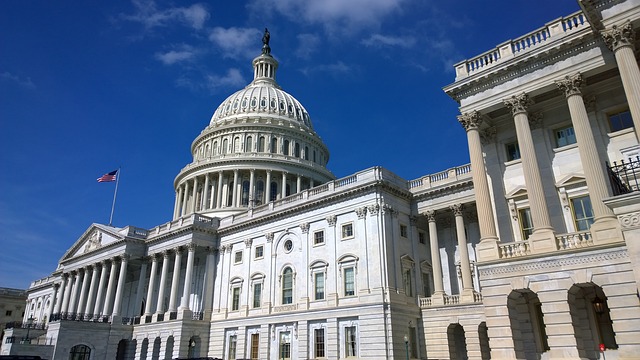
By Susan Pickup, Staff Writer
Last weekend, Duquesne University School of Law students in Professor Rhonda Gay Hartman’s health law class joined those from the School of Pharmacy on their trip to Washington, D.C. The buildings on Capitol Hill were flooded with students in white coats, who were visiting senators and state representatives to encourage support for the Pharmacy and Medically Underserved Areas Enhancement Act. Although this is an annual trip for the pharmacy school, students of the health law class were invited to attend the legislative sessions and experience a typical day advocating on Capitol Hill.
“We’re generally trained for the courtroom in client advocacy,” said Marissa Kohl, a second-year law student, “but this trip offered a unique experience in advocacy on Capitol Hill.”
The Pharmacy and Medically Underserved Areas Enhancement Act, known as S. 314 and H.R. 592, proposes to reimburse pharmacists under Medicare Part B for certain services consistent with other non-physicians who are providing various services to people in medically underserved communities.[1] The bill would essentially amend part of the Social Security Act, specifically Title XVIII, to provide reimbursement for certain pharmaceutical services.[2] The bill is geared toward pharmacists who are currently working in underserved areas, as defined by the Health Resources and Services Administration.[3]
Pennsylvania Sen. Bob Casey, a supporter of the bill, stated earlier last year that “[t]his legislation will aid those in rural communities who may not live in close proximity to the doctor but do have regular contact with their pharmacist.”[4] The bill could allow patients to depend more heavily on their pharmacists for simple medical services that they would otherwise get by a doctor or another medical professional.[5] Since then, the bill has received a lot of support, including from the American Pharmacy Association.[6]
The bill has a significant number of congressional co-sponsors and supporters but remains on the waiting list to be decided upon.[7] The last action on this bill occurred in February 2015.[8] One of the major concerns with the bill is its possible costs. The financial cost of a bill is usually determined by the Congressional Budget Office (CBO); the CBO, however, has not given a score for this bill.[9]
Another consideration is that there has been no opposition from other major medical associations, such as the American Medical Association (AMA). A lack of opposition from these groups is a good sign for the bill’s passage, as medical associations are major influences in the approval of this type of legislation.
It will be interesting to see how the bill progresses over the next congressional session, especially with the upcoming election. Regardless of the outcome, both schools’ students were able to enjoy a weekend in the District of Columbia. The students received an invaluable opportunity to meet with influential people regarding a topic significant to the pharmacy profession, those interested in health law, the topic of reimbursement, and the subject of dependence on non-physician professionals in the future.
Sources
[1] http://www.ashp.org/menu/Advocacy/ProviderStatus/Pharmacy-and-Medically-Underserved-Areas-Enhancement-Act
[2] Id.
[3] Id.
[4] https://www.pharmacist.com/bill-help-pharmacists-provide-medical-services-older-americans-under-served-areas
[5] Id.
[6] https://www.pharmacist.com/bipartisan-legislation-reintroduced-improve-patient-access-health-care-utilizing-pharmacists
[7] https://www.congress.gov/bill/114th-congress/house-bill/592/cosponsors
[8] Id.
[9] https://www.cbo.gov/cost-estimates